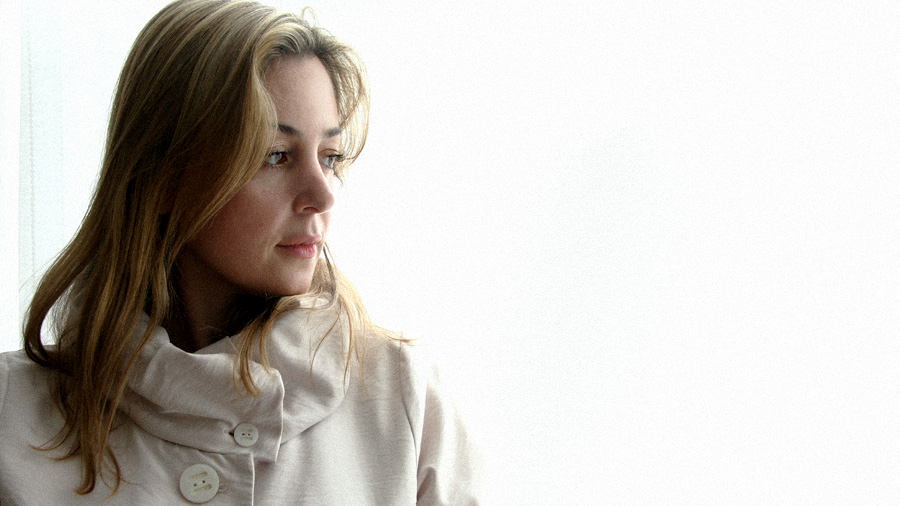Reich, Prestini works provide the highlights with American Composers Orchestra

Paola Prestini’s “The Hotel That TIme Forgot” was performed in its world premiere by the American Composers Orchestra Friday night.
The American Composers Orchestra’s concert Friday night in Zankel Hall had the theme of “Past Forward,“ which according to the ACO illustrated “the role the past plays in the present, from … personal explorations … to broader investigations of the role of memory …” That’s an apt and unobjectionable way to describe contemporary composers’ place in classical music and the well from which they draw their work.
Composers build on the musical past (Bach, Beethoven), and use their personal past to fuel, explicitly or in the abstract, their own work. In this program of three world premieres and a piece from Steve Reich, the past was front and center, for good and ill.
The new pieces, all co-commissioned by the ACO, came in the first half; David Hertzberg’s Chamber Symphony, The Hotel That Time Forgot by Paola Prestini, with accompany video by Mami Kosemura, and Trevor Weston’s Flying Fish. These pieces were not just about the past, but narrative of the past in music, and the lingering influence of 19th century musical romanticism.
Hertzberg’s Chamber Symphony was heavily rooted in the past, and at times almost buried by it. His structural concept was to alternate ideas until they produced a kind of musical Hegelian dialect. Despite what felt like an extremely sluggish start from the orchestra, under conductor George Manahan, the music had an intriguing abstraction, with evocative, piercing dissonances. The ultimate transformation was Wagnerian, recalling both that composer’s emotional yearning and some specific phrases—not inherently a bad thing but a pulling back from the more personal, interesting direction the Chamber Symphony initially stated.
Prestini’s graceful, lovely composition was an exploration of invented memory, her thoughts about the Palmyra Hotel in Lebanon, a place she has experienced only via video. Kosemura’s own video was of a place too, a keyhole view of an interior, with the camera sweeping slowly back and forth. The artist also added some editing and distortion effects, but the visual were only mildly interesting and were subsumed by the colorful music and the fine performance. That The Hotel That Time Forgot was fundamentally about something unreal made the music more expressive and intriguing.
Flying Fish was about the staple food and cultural symbol of Weston’s familiar home, Barbados. He passed on the musical representation of the fish itself and instead produced a lively, colorful piece along the conceptual lines of El Salón México but with no real cultural signifiers other than limited use of steelpan drums. Rather than an evocation of place, Flying Fish was one step removed; an expression of Weston’s feelings about the place. The energetic playing made this completely satisfying.
The odd thing about the past these pieces revealed was how it dominates so much contemporary American composing. The standard of tonal resolution endures, despite the breakthroughs of the 20th century. This feeling of a never-ending process of consolidation of the past is a kind of black hole tugging composition into conservatism.
This was powerfully framed by Reich’s Tehillim, his explicit evocation of his Jewish past via Psalm settings. Over 30 years old, it is still forward-looking in how it uses the ancient fundamentals of counterpoint to produce new ideas.
Tehillim had a shaky start. The singing from vocalists Elizabeth Bates, Rachel Calloway, Martha Cluver, and Mellissa Hughes was superb from the first note, and the percussionists laid out Reich’s energetic rhythms with verve.
The string section, though, was slow to get into the flow of the music. In their first stretch of playing their attacks were mushy, with a notable lag from the bass, and that lack of precision and accent nearly wrecked the syncopations and pulse that are the foundation of the music.
After their initial entrance, the strings drop out, then come in again. Their playing from then on was much crisper, with a strong sense that each note was hitting the beat, and then the performance really came together.
The playing managed to overcome a poor sound mix that drenched the singers in reverb, and shoved their sound to the back, while over-amplifying the strings and setting them like a wall at the front. There has been amplification in classical music for 50 years, and it defies understanding why so much sound amplification is still not at a competent, professional level.
Along with the physical feeling of his rhythms and the glistening beauty of his orchestration, this is one of Reich’s pieces that inexorably builds momentum to a point of revelation, and the ACO ramped up the energy until at the end there was a palpable feeling of power, with the final “Haleyuyahs” just about taking flight.
The American Composers Orchestra, with guest conductor Alan Pierson, plays Steve Reich’s Desert Music for Wall to Wall Steve Reich 3 p.m., April 30, at Symphony Space. [symphonyspace.org]



Posted Mar 26, 2017 at 7:16 am by Kathleen
David H. startled with percussion that fairly brought the dead to life! One could not escape the drone of a swarm disturbed from a hollow. Paola P. did not disappoint producing a gem to support the visual dominance. Trevor W. charmed with the tinkling of bells in fair weather. Tiny wings flapping through the breeze… I was there to see Past Forward, enjoying it throughly!